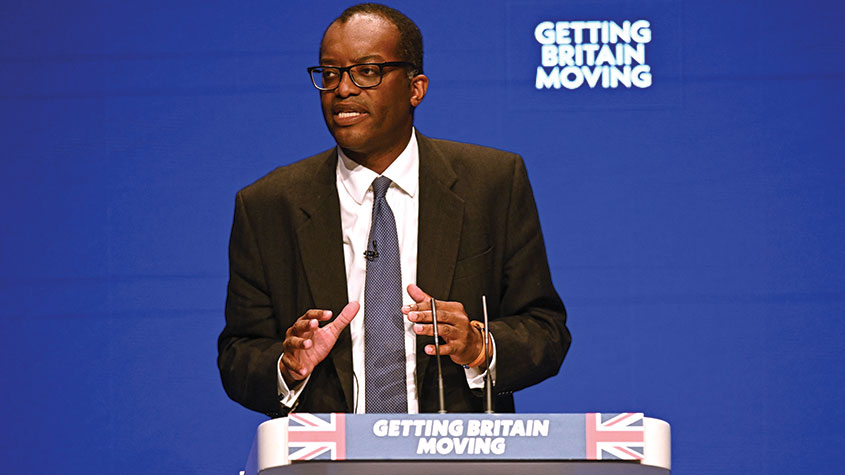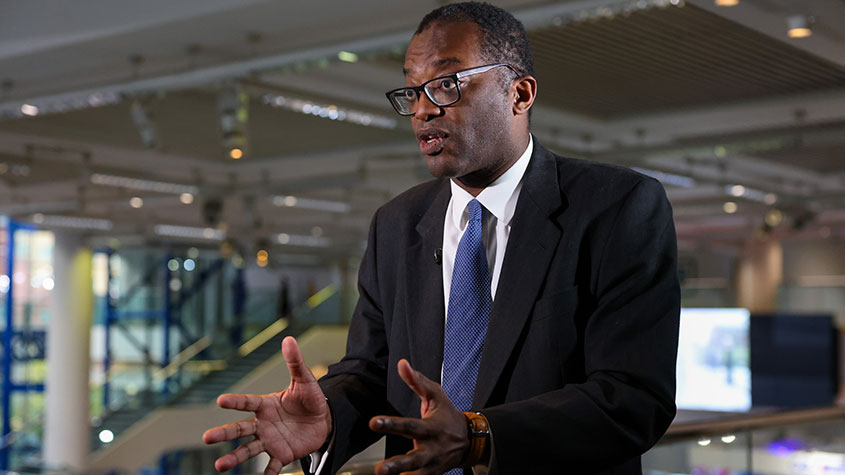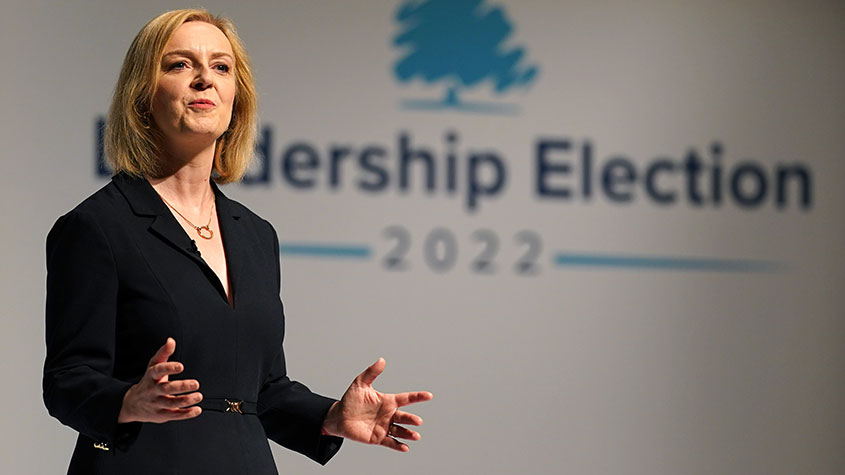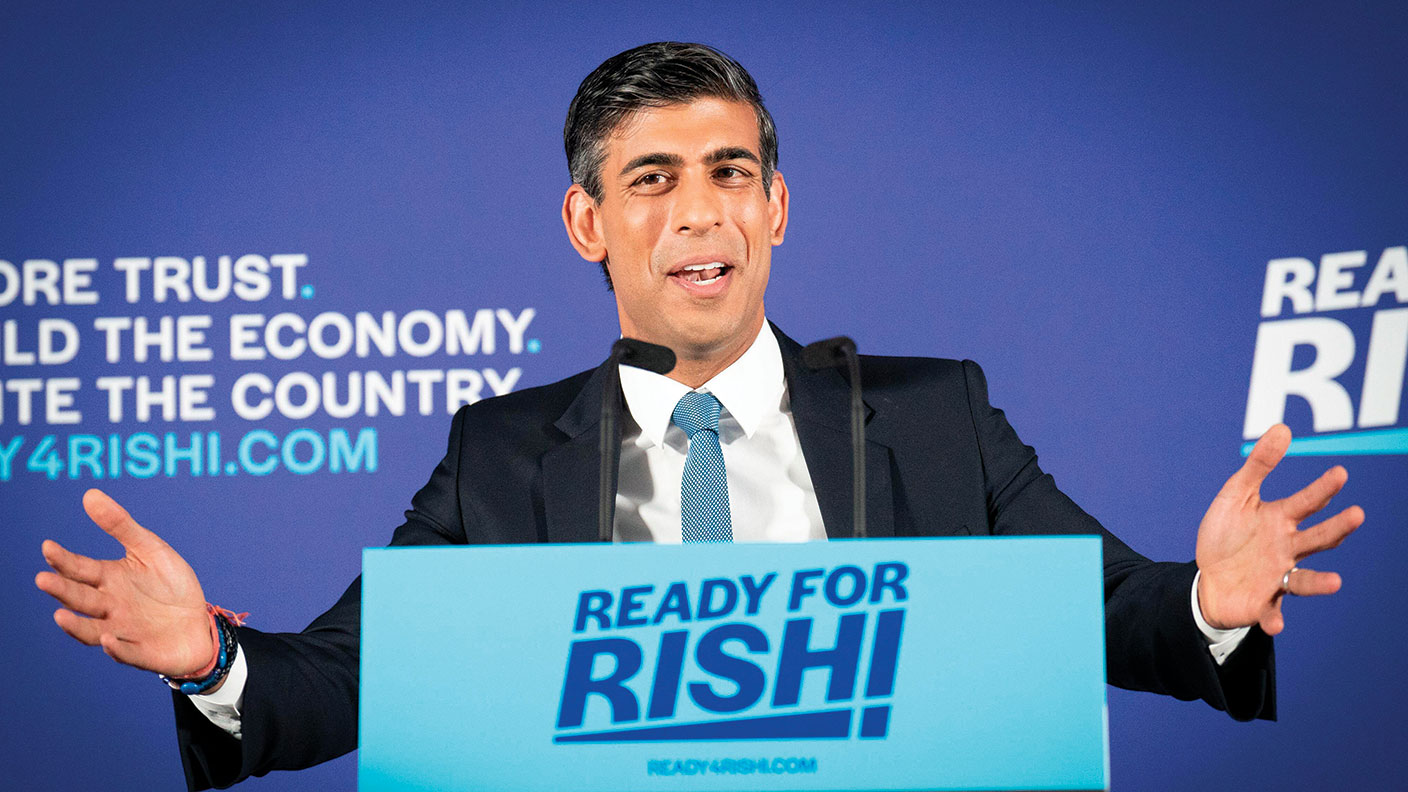The pros and cons of grammar schools
Education secretary Nicky Morgan has reignited the debate over grammar schools after giving the Weald of Kent the go ahead.

Get the latest financial news, insights and expert analysis from our award-winning MoneyWeek team, to help you understand what really matters when it comes to your finances.
You are now subscribed
Your newsletter sign-up was successful
Want to add more newsletters?

Twice daily
MoneyWeek
Get the latest financial news, insights and expert analysis from our award-winning MoneyWeek team, to help you understand what really matters when it comes to your finances.

Four times a week
Look After My Bills
Sign up to our free money-saving newsletter, filled with the latest news and expert advice to help you find the best tips and deals for managing your bills. Start saving today!

The Tory right are "thrilled" with the education secretary, Nicky Morgan, for giving the green light to what "everyone but her is calling the first new grammar school in 50 years", says Gaby Hinsliff in The Guardian. Officially, the new Sevenoaks campus will just be an extension of the existing Weald of Kent grammar in Tonbridge (seven miles away), "not the beginning of a nationwide resurgence for selective education", but that's not how everyone will see it. Whether or not she intended to, Morgan may be "opening an educational Pandora's box".
No she isn't, says Sam Freedman in the FT. Firstly, the decision will be challenged; secondly, many of the existing 163 grammar schools would not want to dilute their selectivity by expanding; and thirdly the government has shown no sign of wanting to abolish the 1998 Act that outlaws creating new grammar schools. Indeed, under David Cameron, there has been a shift in Conservative policy to "improve the system as a whole".
Take the pupil premium, which has redistributed money to schools with more disadvantaged intakes, or the system of pairing good schools with struggling ones. Grammars actually "reducesocial mobility". Disproportionately few children from poor backgrounds pass the 11-plus, in part because their parents cannot afford tutoring, and in local authorities that still have selection, poorer children do worse than in the rest of Britain.
MoneyWeek
Subscribe to MoneyWeek today and get your first six magazine issues absolutely FREE

Sign up to Money Morning
Don't miss the latest investment and personal finances news, market analysis, plus money-saving tips with our free twice-daily newsletter
Don't miss the latest investment and personal finances news, market analysis, plus money-saving tips with our free twice-daily newsletter
It strikes me as bizarre that grammar schools are the only type of school explicitly banned by law, says Charles Moore in The Daily Telegraph. It's like "banning new bookshops because they make the illiterate feel inferior". The idea that it is "automatically wrong" that some people are richer or better educated than others is a "defiance of reality, of the power of incentives and of human freedom itself".
The "weirdest" thing about our attitude to schools is that we expect a uniform system. Why can't we accommodate every type of school from free schools to comprehensives, academies, church schools, state boarding schools and schools with fewer exams or little curriculum? Society gives itself a headache "if it tries to equalise opportunity. What it can do is maximise it. In the field of education it is hard to imagine this happening without more grammar schools."
Get the latest financial news, insights and expert analysis from our award-winning MoneyWeek team, to help you understand what really matters when it comes to your finances.

Emily has worked as a journalist for more than thirty years and was formerly Assistant Editor of MoneyWeek, which she helped launch in 2000. Prior to this, she was Deputy Features Editor of The Times and a Commissioning Editor for The Independent on Sunday and The Daily Telegraph. She has written for most of the national newspapers including The Times, the Daily and Sunday Telegraph, The Evening Standard and The Daily Mail, She interviewed celebrities weekly for The Sunday Telegraph and wrote a regular column for The Evening Standard. As Political Editor of MoneyWeek, Emily has covered subjects from Brexit to the Gaza war.
Aside from her writing, Emily trained as Nutritional Therapist following her son's diagnosis with Type 1 diabetes in 2011 and now works as a practitioner for Nature Doc, offering one-to-one consultations and running workshops in Oxfordshire.
-
 Average UK house price reaches £300,000 for first time, Halifax says
Average UK house price reaches £300,000 for first time, Halifax saysWhile the average house price has topped £300k, regional disparities still remain, Halifax finds.
-
 Barings Emerging Europe trust bounces back from Russia woes
Barings Emerging Europe trust bounces back from Russia woesBarings Emerging Europe trust has added the Middle East and Africa to its mandate, delivering a strong recovery, says Max King
-
 Was Margaret Thatcher great for Britain?
Was Margaret Thatcher great for Britain?The 'Iron Lady’ would be celebrating her 100th birthday this month. Margaret Thatcher rose to power in 1979 as the first ever female prime minister and was one of the most controversial leaders in history, but how did her policies shape today’s finances?
-
 It’s been 16 years, but the UK economy finally has a chance
It’s been 16 years, but the UK economy finally has a chanceOpinion The UK economy has been dealing with one crisis after another since 2007. Policymakers now have a chance to fix some of the underlying problems holding back growth.
-
 The “plan for growth”: what Truss and Kwarteng got right
The “plan for growth”: what Truss and Kwarteng got rightOpinion The Tories’ “plan for growth” has got off to a bad start, but their reforms can still transform Britain
-
 Kwasi Kwarteng U-turns on top tax rate decision
Kwasi Kwarteng U-turns on top tax rate decisionNews Kwasi Kwarteng has U-turned on his top tax rate reduction announced in his mini-Budget at the end of September.
-
 Investors should get ready for a political revolution
Investors should get ready for a political revolutionOpinion Liz Truss will beat Rishi Sunak, cut taxes, and then shake up the Bank of England, says Helen Thomas
-
 Who will be the next prime minister and what are the bookies’ odds?
Who will be the next prime minister and what are the bookies’ odds?News The Tory leadership contest is in its final phase. Matthew Partridge reports on the contest and looks at who the bookies’ favourite is.
-
 The public may have reached its limit for tax rises
The public may have reached its limit for tax risesEditor's letter The UK tax burden is now at a 70-year high. And, while there may be some reason to hold off on cuts right now, taxes are too high because the state tries to do too much. Perhaps it should do less, says Merryn Somerset Webb.
-
 Boris Johnson's exit leaves Britain with a towering in-tray
Boris Johnson's exit leaves Britain with a towering in-trayBriefings Britain’s economic problems are rapidly piling up after the last few years of drift and chaos. What should we do first?